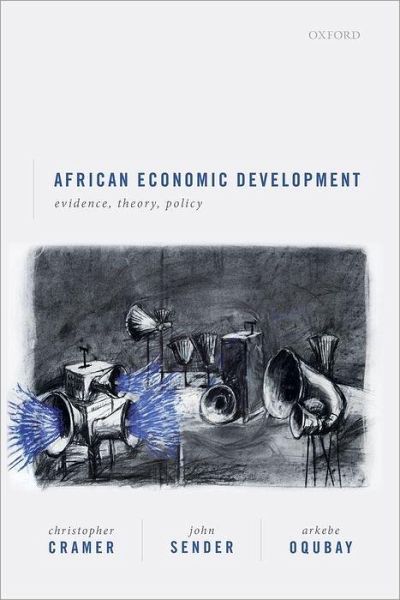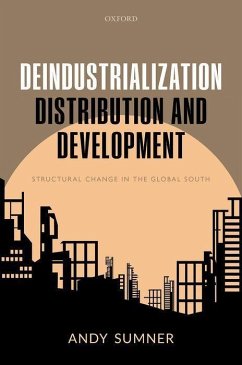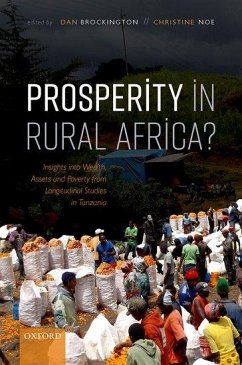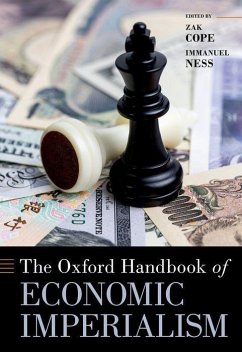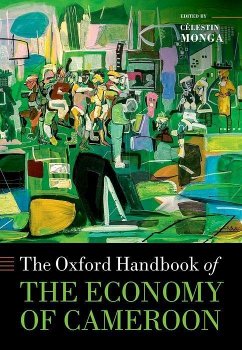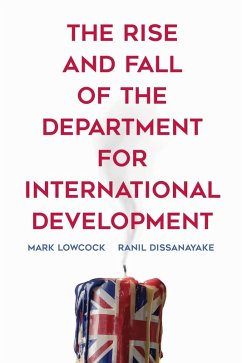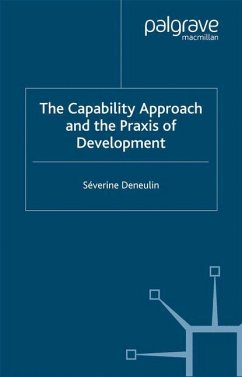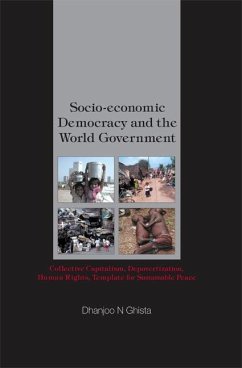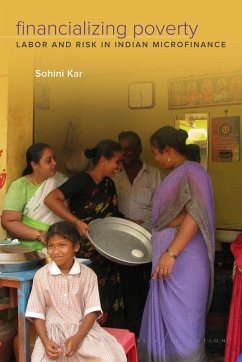African Economic Development
Evidence, Theory, and Policy
Versandkostenfrei!
Versandfertig in über 4 Wochen
Weitere Ausgaben:

PAYBACK Punkte
38 °P sammeln!




Unevenness and inequalities form a central fact of African economic experiences. This book challenges conventional wisdoms about economic performance and possible policies for economic development in African countries, using the striking variation in economic performance as a starting point.
Christopher Cramer is Professor of the Political Economy of Development at SOAS, University of London. He is a vice-chair of the Royal African Society, a Fellow of the Academy of Social Sciences, and chairs the Scientific Committee of the African Programme on Rethinking Development Economics based in South Africa. He is the author of Civil War is Not a Stupid Thing: Accounting for Violence in Developing Countries (2006, C. Hurst) and worked on the Fairtrade, Employment, and Poverty Reduction in Ethiopia and Uganda research project funded by the UK Department for International Development. He co-edited The Oxford Handbook of the Ethiopian Economy (2019, OUP) and The Oxford Handbook on Industrial Policy (2020, OUP). John Sender is an Emeritus Professor of Economics, SOAS, University of London. He began rural fieldwork in the 1970s, while working at the University of Dar es Salaam. Later jobs included: Director of the African Studies Centre, University of Cambridge; Visiting Professor of Political Economy, Witwatersrand University; Senior Research Fellow, African Studies Centre, Leiden. He advised Mandela's Presidential Commissions on Labour and on Rural Credit; Economic Commission for Africa; Federal Government of Nigeria and Federal Democratic Republic of Ethiopia; and he has worked with the Governments of Mozambique, Uganda, Sri Lanka and Vietnam. Early books include: Imperialism (1980, Verso); The Development of Capitalism in Africa (2010, Routledge); Poverty Class and Gender in Africa (2012, Routledge). Many journals publish his work, including: Feminist Economics, Journal of Economic Perspectives, World Development, Cambridge Journal of Economics, and African Affairs. Arkebe Oqubay is a Senior Minister and Special Adviser to the Prime Minister of Ethiopia and has been at the centre of policymaking for over twenty-five years.He is an ODI Distinguished Fellow and holds a PhD in development studies from SOAS, University of London. He is the former mayor of Addis Ababa and winner of the ABN Best African Mayor of 2006, and finalist for the World Mayor Award 2006, for transforming the city. He is a recipient of the Order of the Rising Sun, Gold and Silver Star. His work includesMade in Africa (2015, OUP); How Nations Learn (2019, OUP); The Oxford Handbook of the Ethiopian Economy (2019, OUP); China-Africa and an Economic Transformation (2019, OUP); The Oxford Handbook of Industrial Hubs and Economic Development (2020, OUP); and The Oxford Handbook of Industrial Policy (2020, OUP). He was recognized as one of the 100 Most Influential Africans of 2016, and a 'leading thinker on Africa's strategic development' by the NewAfrican.
Produktdetails
- Verlag: Oxford University Press
- Seitenzahl: 334
- Erscheinungstermin: 11. August 2020
- Englisch
- Abmessung: 236mm x 160mm x 25mm
- Gewicht: 635g
- ISBN-13: 9780198832331
- ISBN-10: 0198832338
- Artikelnr.: 59083447
Herstellerkennzeichnung
Libri GmbH
Europaallee 1
36244 Bad Hersfeld
gpsr@libri.de
Für dieses Produkt wurde noch keine Bewertung abgegeben. Wir würden uns sehr freuen, wenn du die erste Bewertung schreibst!
Eine Bewertung schreiben
Eine Bewertung schreiben
Andere Kunden interessierten sich für



